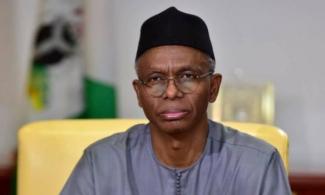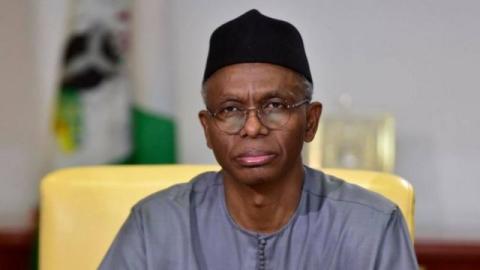
The labour unions said the entire workforce in Nigeria was angry over the private member bill moved by Garba Datti Mohammed representing Sabora Gari Federal Constituency of Kaduna State.
The organised labour has alleged that the Governor of Kaduna State, Nasir El-Rufai, and others were behind the proposed bill to move the minimum wage from the exclusive list to the concurrent list.
This was contained in a letter submitted by the organised labour at a meeting held on Tuesday with the Speaker, House of Representatives, Femi Gbajabiamila, and members of the House committee on labour.

[story_link align="left"]91554[/story_link]
The letter was jointly signed by the President, Nigeria Labour Congress (NLC), Comrade Ayuba Wabba and President, Trade Union Congress (TUC), Comrade Quadri Olaleye.
The labour unions said the entire workforce in Nigeria was angry over the private member bill moved by Garba Datti Mohammed representing Sabora Gari Federal Constituency of Kaduna State.
Mohammed had sponsored the bill seeking to transfer the national minimum wage from the exclusive legislative list to the concurrent legislative list.
The labour unions said, “Organised labour considers this anti-workers bill as an attempt by a few self-seeking and narrow-minded politicians to return Nigeria to the era of slave wages, servile work conditions and severe industrial crisis.
“We have it on good authority that this bill was sponsored by a few governors, especially the Governor of Kaduna State [Nasir El-Rufai].
“The same bill was on Tuesday, 23rd February 2021 rushed through the first and second readings.
“Currently, the bill has been referred to the Ad Hoc Committee on the Review of Nigeria’s 1999 Constitution.”
The unions stated that the National Minimum Wage is the national benchmark minimum below which no employer of labour can pay a worker.
They added that it is a global standard that was adopted by the International Labour Organisation (ILO) as Minimum Wage Fixing Machinery Convention 026 of 1928 and reinforced by Minimum Wage Fixing Convention 131 of 1970.
“It was also captured in Article III subsection (d) of the ILO Philadelphia Declaration which demands all the nations of the world to pursue policies regarding wages, earnings, hours and other conditions of work calculated to ensure a just share of fruits of progress to all, and a minimum living wage to all employed and in need of such protection.”